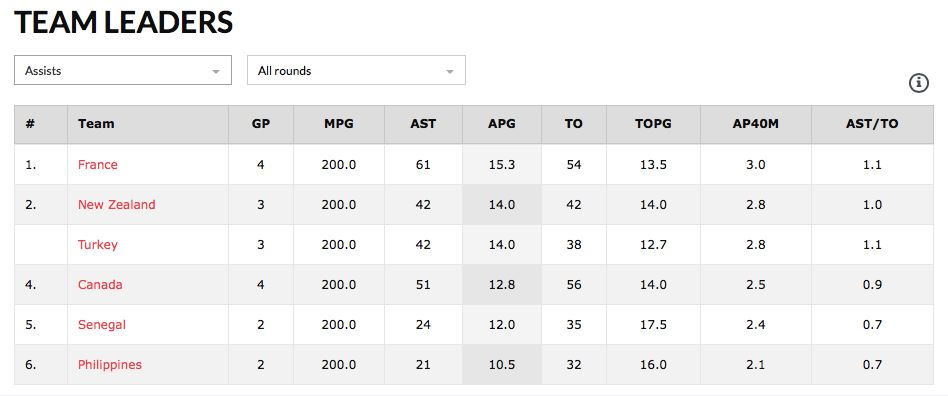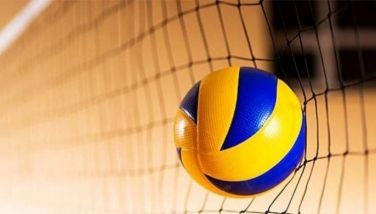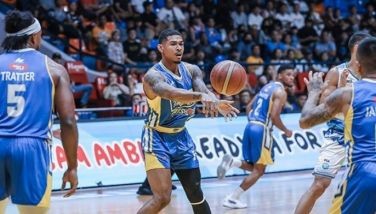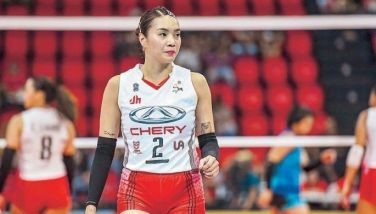The last word on the FIBA OQT: A style of play
July 15, 2016 | 12:26pm
MANILA, Philippines – It has been one week since the Philippines was eliminated from qualification from the 2016 Rio Olympicsm, and the event (the FIBA Olympic Qualifying Tournament) is still the talk of many sports fans. While many marvel at the first hand look at some of the top basketball sides in the world, there is still lament about our national team not advancing beyond the group stage.

One of the oft mentioned comments by local basketball fans was the difference in style of play. The Filipinos played a lot of one-on-one ball and were at times showboating their dribbling skills.
In contrast, the Europeans played team ball.
During a conversation with Senegal’s Spanish coach Porfirio Fisac who coached some pretty big names like Pau and Marc Gasol, Jose Calderon, Rudy Fernandez, Juan Carlos Navarro in Spain’s Junior and Youth National teams, the bearded tactician said, “The most beautiful thing about basketball is the pass. If you know how to pass, it leads to a basket. If you know how to pass, you involve everyone. If you involve everyone, everyone will do their best to win. That is the philosophy that I know. You look at Gasol, Calderon, Navarro, and what can you say about them outside them being stars — they can pass the ball.”
Here’s the basic way of looking at that pass and team play, the total number of assists for the tournament.

The NBA changed basketball around the world yet in turn, Europe has changed the NBA.
The first European to go directly to the NBA without playing college in the United States was Bulgaria’s Georgi Glouchkov who was drafted by the Phoenix Suns in 1985. That was the same year that the Dallas Mavericks brought in Germany’s Detleft Schrempf who played college ball for the Washington Huskies from 1981-85. A few years later, Dutch center Rik Smits, who played for Marist, was drafted by the Indiana Pacers, the team who he spent his entire professional career from 1988-2000. And then there was Golden State’s Lithuanian swingman Sarunas Marciulionis who went to the Bay Area in 1989.
While Schrempf, Smits, and Marciulionis enjoyed solid careers in the NBA, the European basketball was seen as soft (read: played no defense) and only shot treys. Glouchkov lasted only one season. However, it was more of a culture shock and an assimilation problem that the Bulgarian experienced as opposed to his game on the court.
When the 1992 Dream Team formally brought NBA basketball to a global stage with their undefeated run to an Olympic gold medal, that opened the floodgates from the players from the former Republic of Yugoslavia — Drazen Petrovic, Toni Kukoc, Dino Radja, Vlade Divac, and Zarko Paspalj.
And there too were a few youngsters who watched closely, intently, and hoped to make a difference in the game one day.
There was Argentina’s Manu Ginobili who wore out his video tapes of Michael Jordan’s “Come Fly With Me”. There was France’s Tony Parker who also used those trips to Chicago where his father was from to pick out his sport. And there was Pau Gasol, a Barcelona native who had a front row seat to the Dream Team. And Dirk Nowitzki who was 14-years old when Michael Jordan and company played Schrempf, Dallas Mavericks center Uwe Blab, and forward Henning Harnisch.
Parker popularized the Tear Drop that is a staple for almost every team and guard today.
Former Phoenix head coach Mike D’Antoni ran a European-style offense with his Suns. He popularized the use of position-less players, stretch players, and the 1-3-1 zone press; a staple of the champion Italian teams he played for during his career.
The San Antonio Spurs have made a name for themselves with their simple and beautiful game that is heavily European influenced. No wonder people decry them as boring because it lacks the me-first, isolation game with crowd-pleasing dunks that Filipinos have also embraced.
In an article written by Seth Wickersham in ESPN the Magazine, he wrote of Spurs head coach Gregg Popovich — who during the 2013 season have nine foreign players in his roster — "when Pop looks at American talent he sees many players who 'have been coddled since eighth, ninth, 10th grade by various factions or groups of people. But the foreign kids don't live with that. So they don't feel entitled.’”
And the American-style of basketball is so prevalent in its Philippine counterpart. I know of coaches who disallow their bigs to put the ball on the floor. They are supposed to rebound, catch and shoot, and do whatever a traditional big man does. As a result, they become one-dimensional players. This was never more evident in the FIBA Olympic Qualifying Tournament that left many a person admiring the simple style of game the Euro squads (even Senegal played a more European-style game than they have done in the past) played as opposed to the Philippine game that saw a lot of one-on-one play. Canada which plays a similar game to the Americans were also guilty of this although they were more efficient than the Philippines.
The Philippine national team was beaten by two squads — France and New Zealand — with their bigs playing in the perimeter, posting up when need be to pass first and then take a shot. And at times launch treys.
The French centers racked up six assists, the Kiwis had five. From the outside, NZ center Isaac Fotu drilled three triples (Les Bleus’ men in the middle missed their two three-point attempts). As the tournament went on, their bigs increasingly had an impact on the outcome — playing in and out.
Because of their bigs’ ability to shoot, this allowed them to go outside where they took their Filipino counterparts out and allowed their ‘smaller’ players like the 6’2” Tony Parker and the pair of Mickael Gelabale and Nando De Colo who both stand 6’4’ to post up.
There was a simplicity and economy of movement that was efficient and beautiful to watch.
The losses were painful especially since it was on our home court. However, as the saying goes, there is much to learn in defeat more than victory. Now, the question is, will we learn from this?
In the aftermath of our FIBA OQT exit, I heard all sorts of comments from basketball observers, fans, and even people related to the program. The criticism is stinging.
What? We place second in FIBA Asia and make the World Cup for the first time in ages and we’re supposed to be world beaters? We beat Korea on our home floor and we’re supposed to replicate that ambush here? It could happen but it also could. As I previously wrote, home court advantage doesn’t mean we will win. Ask Brazil in the last World Cup, France in the last Euro finals, or even the Golden State Warriors.
In case you didn’t notice, Korea beat us in the 2014 Asian Games - in another heartbreaker of a finish -- after that 2013 FIBA Asia.
I think when we can beat China, Iran, Korea, and our Asian foes REGULARLY and CONSISTENTLY and become FIBA Asia champions, only then can we take the game to another level. One win over Iran, China, or Korea doesn’t mean we’ve gotten over the hump. Greece, Spain, and France also had to go through that route.
I’ll say this though, the manner of how we play basketball or how we demand success in general reflects our culture as a people. It is like the we drive — impatient, always looking for short cuts, trying to stand out with flashy cars in traffic-choked streets where you can’t really drive fast unless it’s in the wee hours of the morning.
The sad thing about the FIBA OQT is it’s a sobering reality check.
BrandSpace Articles
<
>
Philstar
x
- Latest
- Trending
Trending
Latest
Trending
Latest
Recommended


























